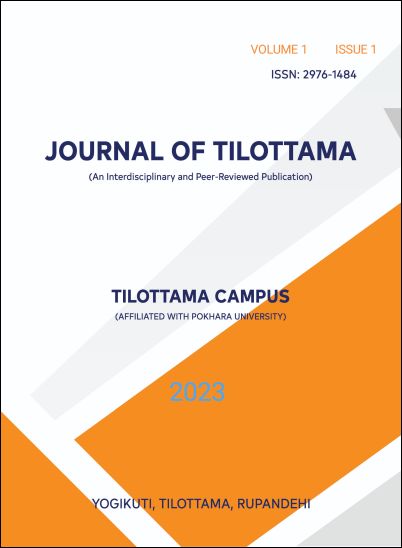Challenges in English Listening Comprehension: A Study of Public Schools in Rupandehi
DOI:
https://doi.org/10.3126/jtilottama.v1i1.64514Keywords:
Assimilation, Listening Comprehension, Listening Problem, Prolonged ListeningAbstract
One of the four fundamental and inseparable language skills that most language learners strive to acquire to communicate successfully in a variety of circumstances is listening. However, listening skills are neglected in school education. This study aimed at examining problems faced by students in listening comprehension in English classes. I selected 60 students as respondents using a random sampling procedure from six public schools studying English in Rupandehi. Three sets of closed-ended questionnaires with 25 items on students’ problems with listening comprehension were administered to elicit the data from them. To carry out the study, I employed a survey research design as a research method. The study indicated that the content of the listening text (e.g., unfamiliar vocabulary and too long and complex listening text) was the major problem with listening faced by the students. The second problem related to the listener included a lack of concentration with long listening texts and the existence of noise in the place. The third listening problem was associated with the speaker and the physical setting, which was concerned with the speaker’s speed of speech and different accents. The results indicated that the majority of respondents sometimes suffered from problems related to the content of the listening text, the listener and speaker, and the physical setting. The findings of this study can enhance teachers’ and students’ knowledge of the issues with listening comprehension.
Downloads
Published
How to Cite
Issue
Section
License
Copyright (c) 2023 Tilottama Campus

This work is licensed under a Creative Commons Attribution-NonCommercial 4.0 International License.
This license enables reusers to distribute, remix, adapt, and build upon the material in any medium or format for noncommercial purposes only, and only so long as attribution is given to the creator.




